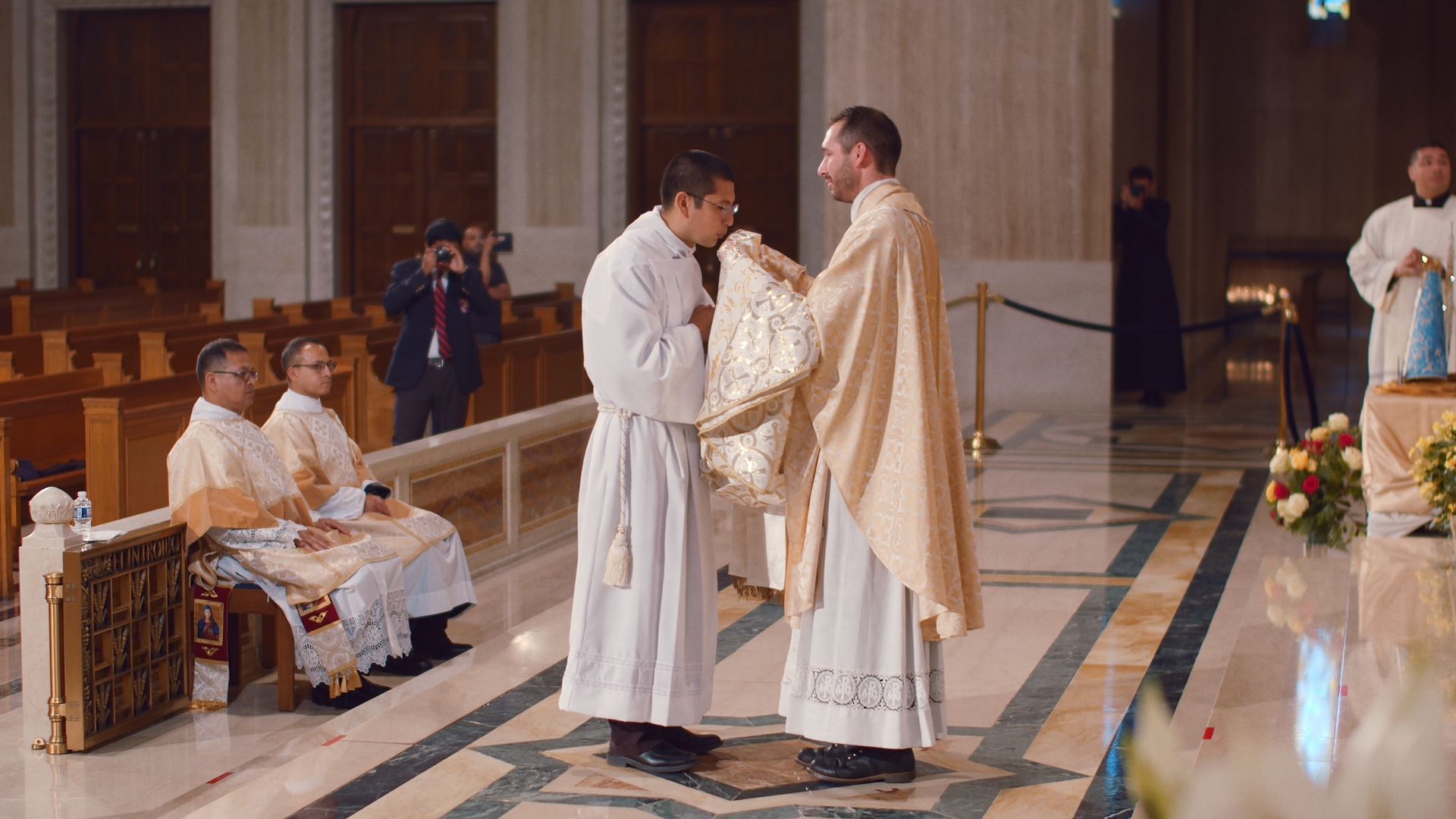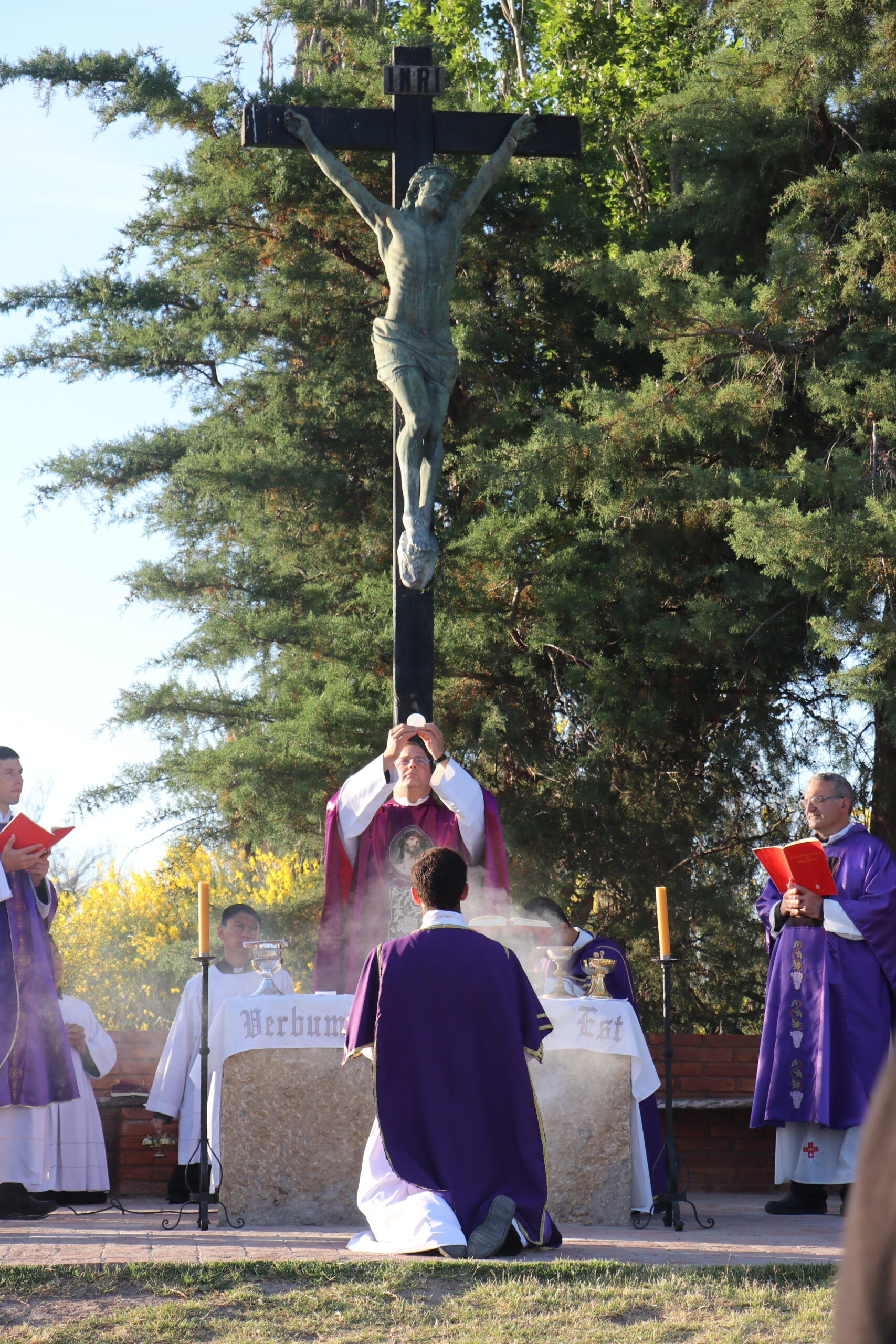Facebook
Youtube
Instagram
Menu
“I pledge all my strength so as not to be evasive to the missionary adventure, in order to inculturate the Gospel in the diversity of all cultures, to extend the Incarnation of the Word in all men, in the whole man, and in all the manifestations of man”
IVE Vows formula
Saint Thomas teaches in a very enlightening way that “the good of our neighbor is advanced by things pertaining to the spiritual welfare of the soul rather than by things pertaining to the supplying of bodily needs … [for they are] more pertinent to the service of God, to Whom no sacrifice is more acceptable than zeal for souls.”[1]
To be able to offer that sacrifice, which is most pleasing to God, there is a determining element, which is our very faith. The mission is born from faith in Jesus Christ, and it is only with the vision of faith that it is understood and has its foundation. It is only when the missionary is driven by faith that he can say with the Apostle: I will most gladly spend and be utterly spent.[2] Only when moved by faith will the missionary be ready to desire to be consumed for the good of the souls entrusted to him, and what is more, he will long to persevere in being consumed little by little for others even to the end. From this springs the truth that “the success of our apostolate depends on the strength of our faith.”[3]


Inculturation is a demand intrinsic to evangelization, and it is nothing other than the incarnation of the divine message in the heart of culture.
In the words of St. John Paul II, “the inculturation of the Christian Good News is making the Gospel sink its roots into life and to culture so as to renew society.”[5] Our Directory of Spirituality affirms that “true inculturation is from within: it consists, ultimately, of a renewal of life under the influence of grace,”[6] for which reason it is imperative to “know and respect the cultural soul of each people, their language and traditions, their qualities and values.”[7]
Therefore, “all that refers to man, either his body or his soul, in his individual life as well as social life, can and should be purified and elevated with the grace of Christ, and consequently, we may affirm that all forms of apostolic activities are in conformity with our specific end, although in a hierarchical way.”[8] From this surges the great variety of apostolic works that we can take on and which we should never renounce.
St. John Paul II said, “Today the Church must face new challenges to which she must respond from the Gospel.… I exhort you, that your preaching may always be inspired by the Word of God, passed on by tradition and proposed by the authority of the Magisterium of the Church. Speak with valiance, preach with deep faith, and encouraging hope, as witnesses of the Risen Lord. Do not consider yourselves as teachers aside from Christ, but as witnesses and servants that, as the words of the Roman Pontifical remind us in the ordination of priests, ‘believe what they have read, and teach what they have believed, and practice what they have taught.’”[9]

[1] Saint Thomas Aquinas, STh 2-2, 188, 4.
[2] 2 Cor 12:15.
[3] Saint John Paul II, Meeting with priests, religious and lay people gathered in the Cathedral of Arezzo, 23 May 1993.
[4] Directory of Evangelization of Culture, 74.
[5] Saint John Paul II, To priests, religious and other pastoral workers of Luanda, 4 June 1992.
[6] Saint John Paul II, Address to the Bishops of Zimbabwe in Ad Limina Visit, 2 July 1988.
[7] Saint John Paul II, To priests, religious and other pastoral workers of Luanda, 4 June 1992.
[8] Directory of Evangelization of Culture, 152.
[9] Saint John Paul II, Mass for priests, men and women religious of Santo Domingo 10 October 1992; op. cit. Roman Pontifical, Rite for Ordination of Priests.
Institute of the Incarnate Word. © 2022 All rights reserved. | The Institute of the Incarnate Word, Inc. We are a non-profit 501(c)3 religious organization.